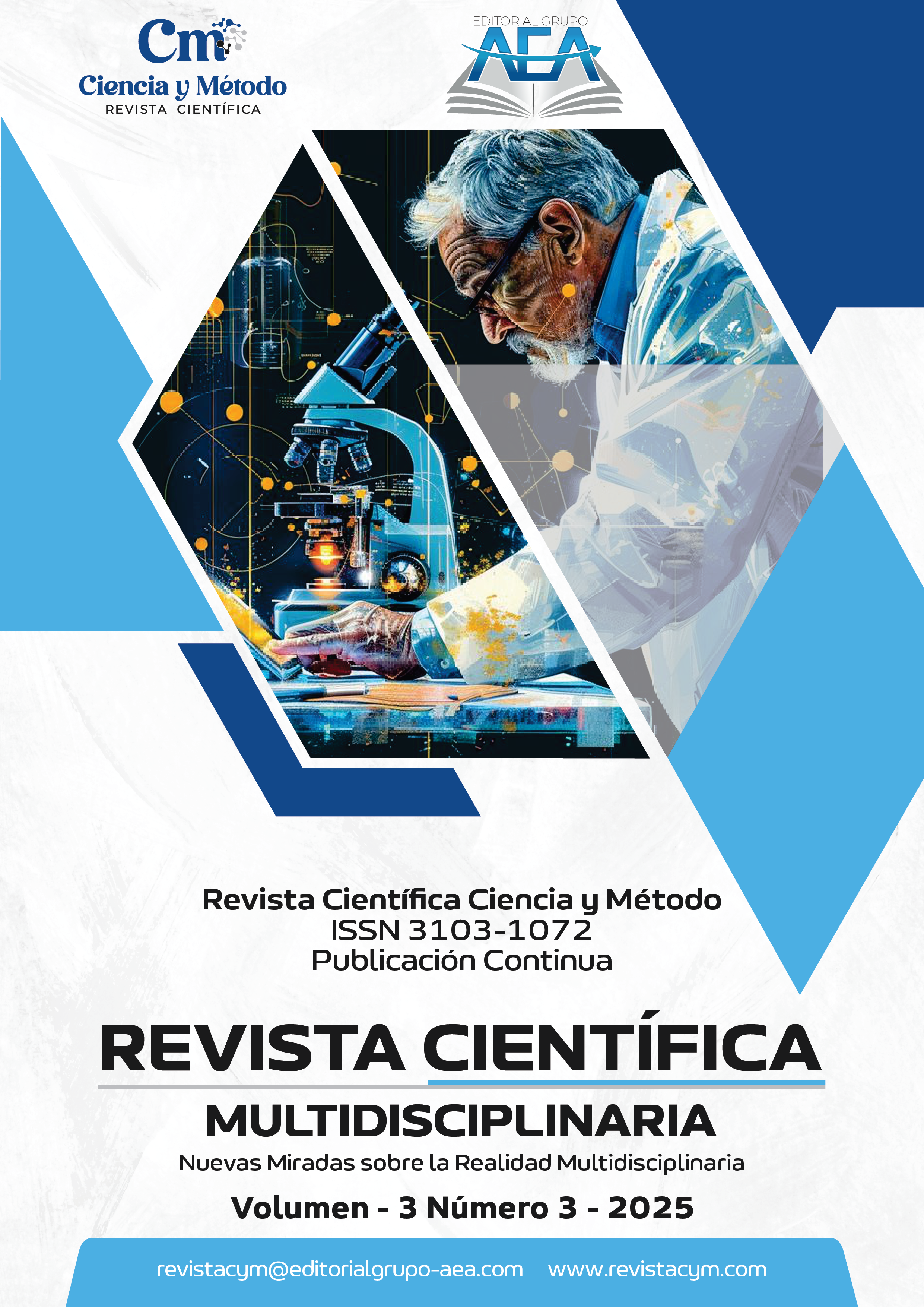Impact of educational practice on the development of critical thinking in secondary school students in Latin American contexts
Main Article Content
Abstract
This article analyzes how traditional educational practices based on the behaviorist paradigm affect the development of higher-order cognitive skills in secondary education students. Through a case study conducted at a public technical school in Ecuador, patterns of teaching that hinder reflective thinking are identified, and pedagogical alternatives grounded in constructivist and socio-critical models are explored. The findings reveal that the limited use of metacognitive strategies and graphic organizers negatively impacts students' critical, conceptual, and formal thinking. It is concluded that transforming teaching practices, supported by continuous professional development with an epistemological focus, is essential to enhancing intellectual competencies aligned with the demands of contemporary education.
Downloads
Article Details
Section

This work is licensed under a Creative Commons Attribution-NonCommercial 4.0 International License.
How to Cite
References
Anderson, L. W., & Krathwohl, D. R. (2001). A taxonomy for learning, teaching, and assessing: A revision of Bloom's taxonomy of educational objectives. Longman.
Ausubel, D. P. (1968). Educational psychology: A cognitive view. Holt, Rinehart and Winston. https://doi.org/10.4324/9781003075328
Braun, V., & Clarke, V. (2006). Using thematic analysis in psychology. Qualitative Research in Psychology, 3(2), 77–101. https://doi.org/10.1191/1478088706qp063oa DOI: https://doi.org/10.1191/1478088706qp063oa
Facione, P. A. (1990). Critical thinking: A statement of expert consensus for purposes of educational assessment and instruction. American Philosophical Association. https://doi.org/10.1037/t32275-000 DOI: https://doi.org/10.1037/t32275-000
Halpern, D. F. (1998). Teaching critical thinking for transfer across domains: Dispositions, skills, structure training, and metacognitive monitoring. American Psychologist, 53(4), 449–455. https://doi.org/10.1037/0003-066X.53.4.449 DOI: https://doi.org/10.1037/0003-066X.53.4.449
Kuhn, D., & Dean, D. (2004). Metacognition: A bridge between cognitive psychology and educational practice. Theory Into Practice, 43(4), 268–273. https://doi.org/10.1207/s15430421tip4304_4 DOI: https://doi.org/10.1353/tip.2004.0047
Lai, E. R. (2011). Critical thinking: A literature review. Pearson Education.
Merriam, S. B. (2009). Qualitative research: A guide to design and implementation. Jossey-Bass.
Piaget, J. (1972). Psychology and epistemology: Towards a theory of knowledge. Penguin.
Rivas, H. (2020). Pensamiento crítico y docencia en América Latina: entre la utopía curricular y la práctica tradicional. Revista Electrónica Educare, 24(1), 191–210. https://doi.org/10.15359/ree.24-1.11 DOI: https://doi.org/10.15359/ree.24-1.11
Stake, R. E. (1995). The art of case study research. Sage Publications.
Swartz, R. J., & Parks, S. (1994). Infusing the teaching of critical and creative thinking into content instruction: A lesson design handbook for the elementary grades. Critical Thinking Press. https://doi.org/10.4324/9781003327410
Torres-Roberto, M. A., & Solano-Camargo, S. P. (2025). La baja natalidad en Colombia y su impacto en la educación pública y privada. Revista Científica Zambos, 4(2), 240-264. https://doi.org/10.69484/rcz/v4/n2/120 DOI: https://doi.org/10.69484/rcz/v4/n2/120
Valverde-Berrocoso, J., Garrido-Arroyo, M. C., Burgos-Videla, C., & Morales-Cevallos, M. B. (2020). Educational technology in higher education: An analysis of its impact on the development of critical thinking. Sustainability, 12(3), 1260. https://doi.org/10.3390/su12031260 DOI: https://doi.org/10.3390/su12125153
Vygotsky, L. S. (1978). Mind in society: The development of higher psychological processes. Harvard University Press. https://doi.org/10.1007/978-1-4899-7210-5





